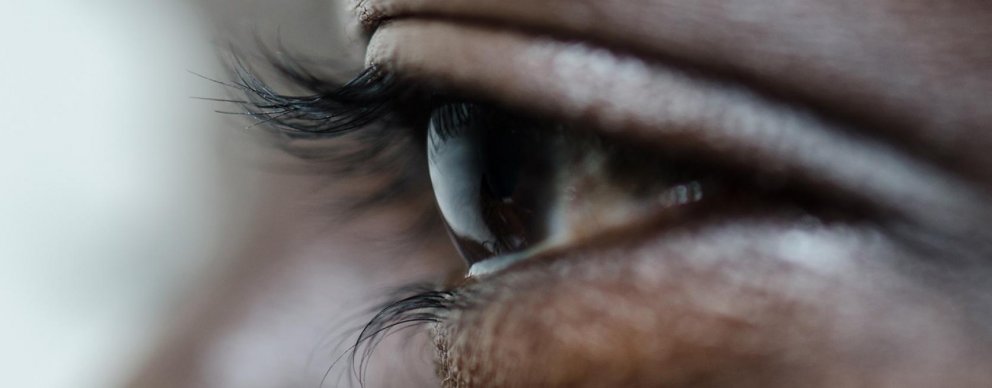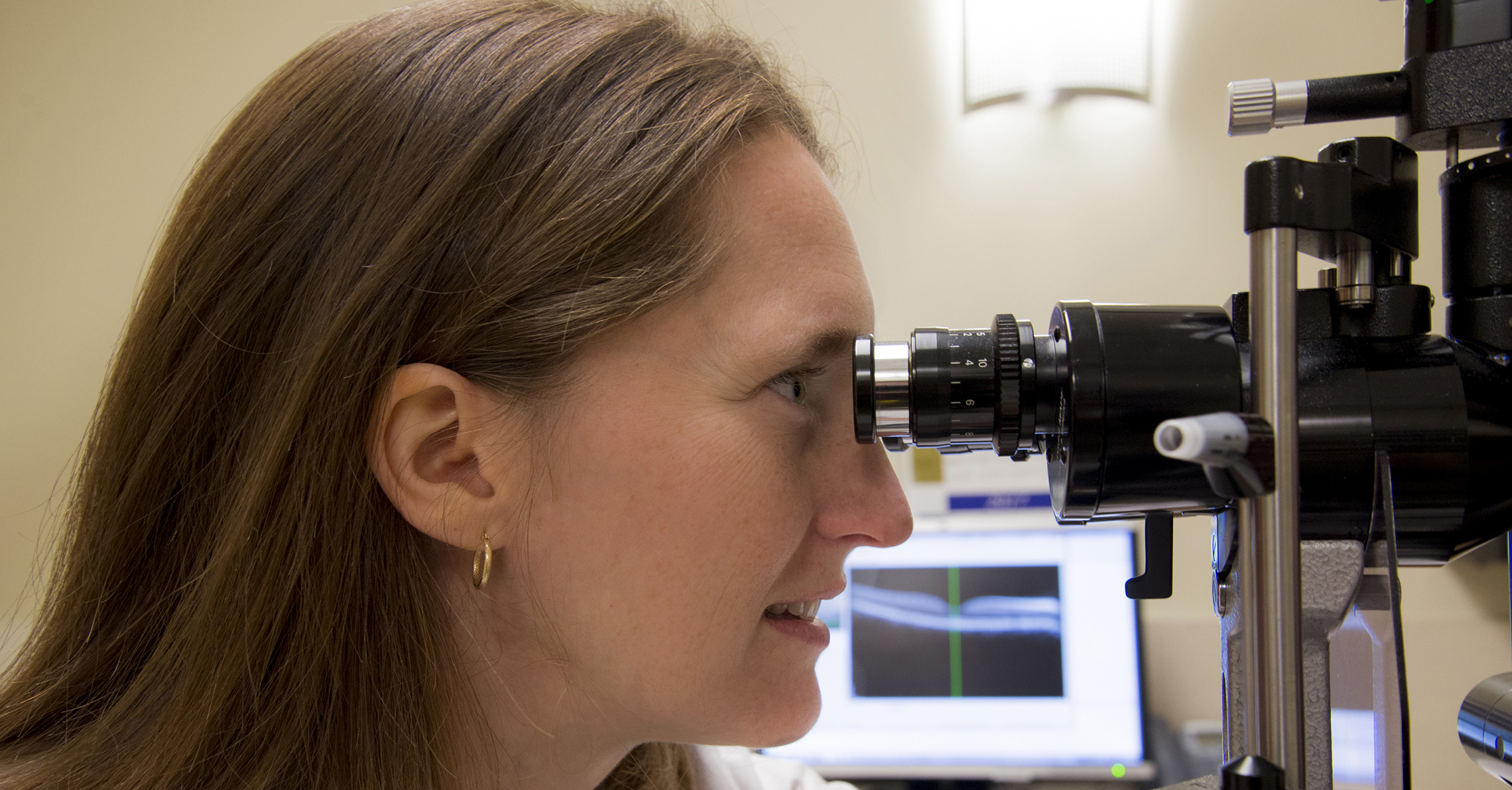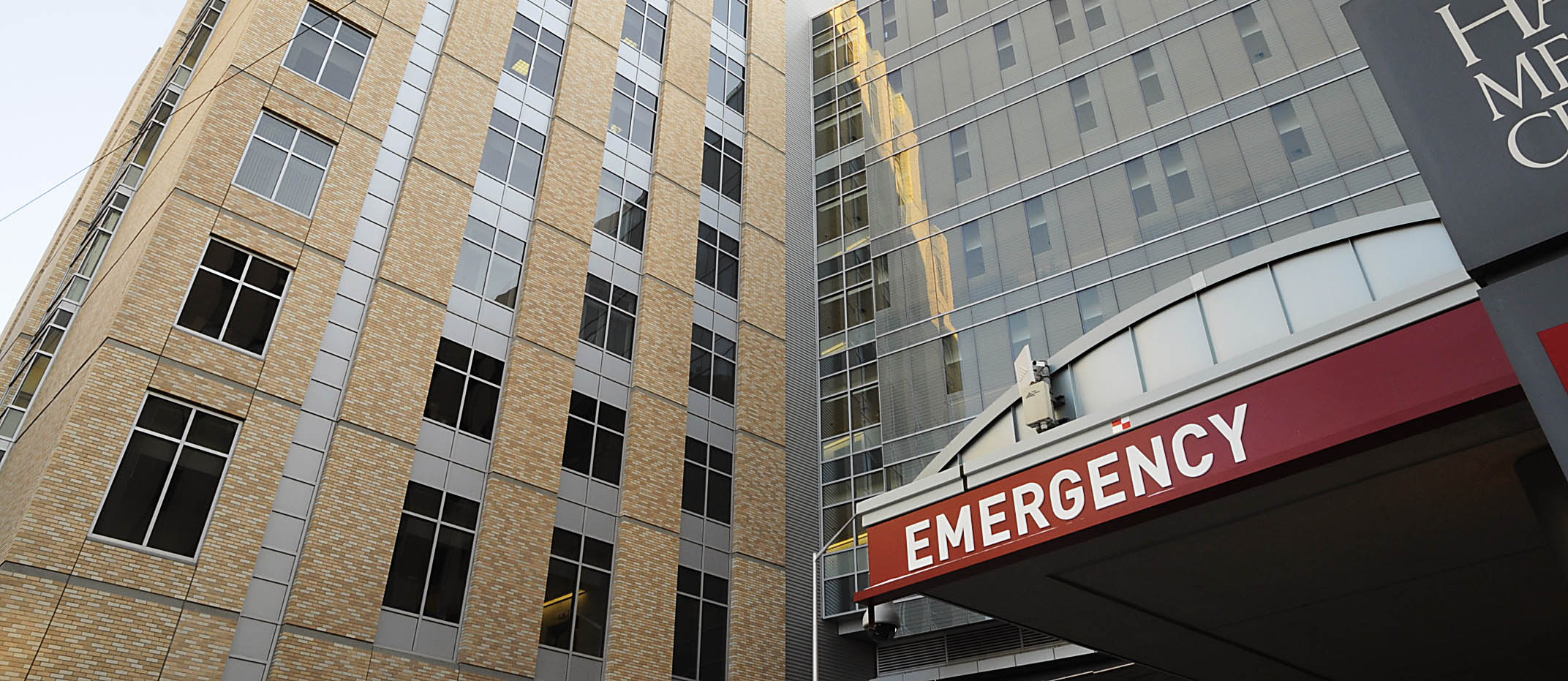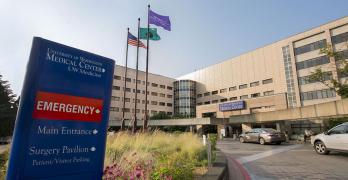Eye Institute
Complete care for your eyes, including treatment for glaucoma, cataracts and vision correction surgery

Set your sights on comprehensive eye care and vision research.
Full-Spectrum Care
Led by ophthalmologists, our team of medical doctors and optometrists can meet all your medical and surgical eye care needs.
Visionaries, At Your Service
Not only are our eye doctors outstanding care providers, many are also leading scientists in vision research.
For Your Eyes
Don’t trust your eyes to just anyone. Together, our specialists and full-service optical shop provide the meticulous, modern eye care your vision deserves.

Karalis Johnson Retina Center
Now open, the Karalis Johnson Retina Center brings together the latest science and treatments for patients with retinal conditions. Learn how we’re moving care forward.
Some of our common services:
Our oculofacial plastic surgeons are experts at aesthetic and reconstructive surgery of the eyes and the delicate tissues around them. Our surgeons perform brow and face lifts, repair facial damage from trauma, and remove tumors. They also work hard to make sure you’re happy with the way you look.
Commonly known as macular degeneration, AMD is the No. 1 cause of vision loss in people age 50 and older. This disease destroys the sharp, central vision one needs to see objects clearly and perform tasks such as reading and driving.
A cataract is when the lens in the eye becomes opaque and clouds and dims vision. Most cataracts develop as people age, usually occurring at age 65 and older. Cataract surgery removes the opaque lens and replaces it with a clear artificial lens.
For sharp vision, you need a clear cornea. When injured, the cornea can swell, lose some of its transparency and cloud vision. This swelling is called corneal edema. This condition can develop because of trauma, eye surgery, infection, inflammation, various eye diseases and over-wearing certain types of contact lenses.
This eye disease develops in people with diabetes, and is a leading cause of blindness in adults. Diabetic retinopathy occurs when high blood sugar levels damage blood vessels in the retina. We offer a range of medical and surgical treatments for this condition.
Our eyes need tears to keep them moist and clear. If our eyes do not produce enough tears, they feel dry, gritty and itchy. From dietary changes to over-the-counter artificial tears to prescription medications, we’ll find the best treatment to soothe your eyes.
Eye exams allow your vision care expert to identify vision problems or eye diseases and treat them as early as possible.
This full-service optical shop is conveniently located in the heart of Seattle. The opticians and staff will provide you with the excellent care and great service you deserve. Services include:
- Comprehensive eye exams
- Contact lens fittings
- Large selection of high-fashion frames
- Specialty prescription eye wear available
This eye disease occurs when the normal fluid pressure inside the eye builds up, damaging the optic nerve. The damaged optic nerve can lead to losing eyesight. Glaucoma can be treated medically or surgically.
Vision insurance plans and health insurance plans cover eye care differently. Vision plans cover routine eye exams that check vision, screen for eye diseases, and update eyeglass and contact lens prescriptions. Health plans cover exams that diagnose and treat medical problems, such as conjunctivitis, glaucoma, cataracts and vision loss. Always check with your insurance company to see what your benefits are before your appointment.
This branch of ophthalmology concerns the diagnosis and treatment of tumors on the surface or inside of the eye. Fortunately, there are many options for treating eye cancer once it is detected. Our ocular oncology experts specialize in treating eye lesions and tumors in adults and children.
Inform yourself to make the best choices for your health and care with UW Medicine patient education resources.
Support is an important part of your care beyond treatment. Support groups and community resources can help you and your loved ones through your medical journey and recovery.
This is a group of diseases that causes inflammation of eye tissues. Our ophthalmologists are skilled at diagnosing uveitis and offering treatments.
Surgery is a common treatment for correcting or adjusting vision problems. Some surgical procedures reshape the cornea and others replace the lens inside the eye with a new one. Our vision care team offers a full range of vision correction surgeries to help you see clearly.
Two types of surgeries—LASEK and PRK—correct nearsightedness, farsightedness and astigmatism by reshaping the cornea with a laser.
AK is a procedure that corrects astigmatism by reshaping the cornea with carefully placed incisions. AK is also used with PRK to correct combined astigmatism and nearsightedness.
With CLE, the natural lens of the eye is removed and replaced with a lens implant. This procedure is used in certain patients who have high degrees of nearsightedness or farsightedness, or who are not good candidates for any of the laser surgeries.
Our vision is usually affected when the shape of our eyes prevents light from focusing directly on the retina. These problems, called refractive errors, can be improved or fixed with corrective lenses or surgery. The most common of these problems are:
- Astigmatism
- Myopia or nearsightedness
- Hyperopia or farsightedness
- Presbyopia
We are one of the country’s leading institutions engaged in research to improve vision care and prevent eye disease. Our vision research programs are fueled by over 20 grants from the National Institutes of Health as well as generous philanthropic donations. Their support helps us pioneer ground-breaking treatments and cures.
Convenient care, in your neighborhood.
Eye Institute at Harborview
Medical Specialty
Hours Today
Appointments
Karalis Johnson Retina Center at South Lake Union
Medical Specialty
Hours Today
Appointments
Eye Center at UW Medical Center - Montlake
Medical Specialty
Hours Today
Appointments

Should I go to the emergency room or urgent care?
If you have an illness or injury that you think may be life-threatening without immediate care, call 911 or go to the nearest emergency room.
If you have an illness or injury that is not life-threatening but needs attention today, go to urgent care.


